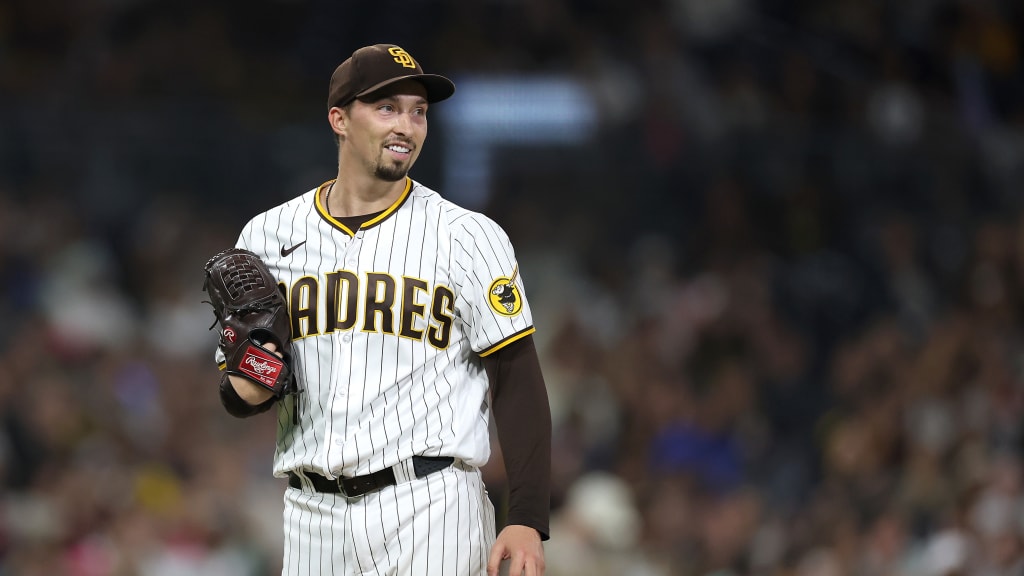Completed Deal: Twin agreed to a two-year, $62 million contract with the Padres pitcher, giving him the option to opt out following the forthcoming season. However, speculations have it that…
Why Wouldn’t the Twins Have Outbid the Giants For Blake Snell?
On Monday, the San Francisco Giants signed Blake Snell to a two-year, $62 million contract that allows him to opt out after the upcoming season. Snell, 31, is coming off a Cy Young Award-winning season where he led the league with a 2.25 ERA (182 ERA+) pitching for the San Diego Padres. In February, the New York Yankees reportedly offered the two-time Cy Young Award winner a six-year, $150 million contract.
In November, The Athletic’s Tim Britton projected Snell to get a five-year, $135 contract. The Minnesota Twins are prudent in passing on a long-term deal with Snell. But they may have worked out a Carlos Correa–type deal with the lefty. Like any team, the Twins could use a frontline starter like Snell. But their need for pitching has intensified because projected fifth starter Anthony DeSclafani is likely out for the season. Jhoan Duran and Caleb Thielbar will begin the year on the injured list.
Snell would have been a perfect fit. Louie Varland will likely be Minnesota’s fifth starter with DeSclafani out. While the righty from North St. Paul would prefer to start, the Twins don’t have much depth behind him. Prospects David Festa, Simeon Woods Richardson, and Brent Headrick are next in line behind Varland. Furthermore, Varland was more effective as a reliever last year. He had a 5.30 ERA in 10 starts last year but a 1.50 ERA in seven relief appearances. Varland also didn’t give up a run and recorded two outs in the postseason.
Signing Snell would have added depth to the rotation and the bullpen. With Snell in the rotation, the Twins could have moved Varland to the bullpen to fill in behind Brock Stewart and Griffin Jax, who will be Minnesota’s highest-leverage relievers with Duran out. Varland has filled out his repertoire with five pitches and used spring training to prepare to start. But he wouldn’t be limited to a relief role just because he started the year in the bullpen. Varland could return to being a starter once Duran returns, providing depth in case another Twins starter gets injured.
Snell isn’t Minnesota’s only option to add depth to the rotation. They could sign mid-rotation righties Michael Lorenzen or Mike Clevinger or add inexpensive veterans like Rich Hill, Noah Syndergaard, or Vince Velasquez. But Snell offers more upside as a one-two punch with Pablo López at the top of the rotation. The Twins would have also made a reasonable commitment to Snell. San Francisco signed him to a two-year deal with an opt-out. Signing Snell through age 33 isn’t the same risk as paying him until he’s 36.
The Twins would have gone over budget to sign Snell, but not significantly. In November, The Athletic reported that Minnesota wanted to reduce payroll from $154 million last year to between $125 and $140 million, given the uncertainty about their television contract. The Twins have a $116 million payroll, according to Spotrac. Adding $31 million to that would bring them above their $140 million mark, but they wouldn’t take on the risk of adding term. Snell would fit an immediate need, and Minnesota would show commitment to winning a year after advancing in the playoffs for the first time since 2002.

However, Snell may not have signed a short-term deal with the Twins. He grew up in Seattle and was familiar with the Giants after pitching in the NL West for three years with the Padres. Snell may also be looking for a team likely to re-sign him long-term if he pitches well this year, similar to how Correa parlayed one year with the Twins into a $200 million extension. Even if Snell had pitched well this year, an extension in the five-year, $135 million range would be risky, even if Minnesota operated with a higher payroll. The Twins can pass on Snell in the abstract because they have many solid pitching prospects on the verge of the majors. They just needed a pitcher like him this year, which is why the $62 million contract with an opt-out is so enticing.
Suppose Snell would only go to San Francisco on a short-term deal because he wanted to stay out west. Perhaps he thinks the Giants, who offered Correa $350 million before concerns about his medicals, are more likely to extend him long-term. Then it’s less likely he will take a similar deal with the Twins, given they’re in the Midwest and have a tighter budget. In that case, Minnesota didn’t miss an opportunity with Snell.
However, if the Twins didn’t make a similar offer because they were concerned about spending over $140 million on payroll, they missed an opportunity to get another Boras client at value. Many of Boras’ clients waited out the market, hoping to get long-term deals this offseason. In doing so, some of his players lost value. Snell signed for less than Josh Hader (five years, $95 million) and Sonny Gray (three years, $75 million).
If Snell had been willing to come to Minnesota for two years with an opt-out, the Twins should have jumped at that opportunity. He would have been a perfect fit on a team that has recently lost three pitchers.




